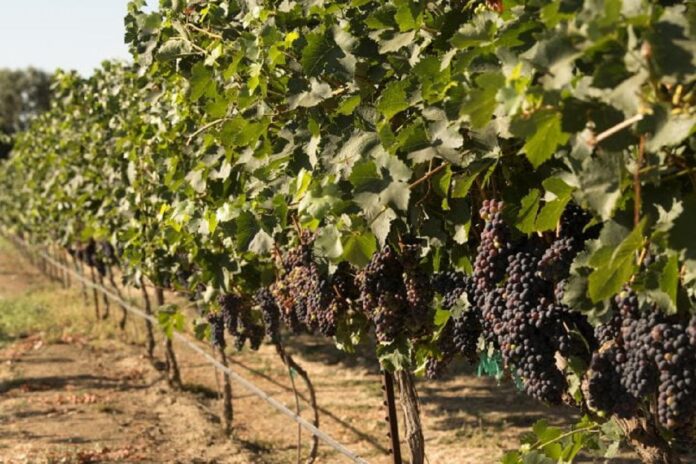Crop yields are affected by changing temperatures, weather extremes, and water availability, which changes the distribution of arable land. Additionally, it changes the distribution of plant pathogens like Xylella fastidiosa, which can cause disease in important crops, including grapevines, coffee, almonds, and citrus.
Researchers led by Distinguished Professor of Ecology & Evolutionary Biology Brandon Gaut of UC Irvine and Professors of Viticulture & Enology Dario Cantù and Andy Walker of the University of California Davis have made a significant advancement in the fight against the devastating grapevine disease Xylella fastidiosa.
The research published in Communications Biology demonstrates that wild grape plants have candidate genes for disease resistance, which is encouraging for the future of the agricultural sector.
The bacteria Xylella fastidiosa affects a number of crops, including grapes, coffee, almonds, citrus fruits, and olives.
The study concentrated on Vitis arizonica, a wild grape variety with built-in tolerance to the bacterium. The researchers found potential genes that may be inserted into grapevines to increase their resilience through genetic mapping and genome-wide association studies. These discoveries have the potential to transform the agricultural sector and provide a remedy for the multibillion-dollar issue that Xylella fastidiosa has caused.
The study’s examination of the relationship between resistance genes and climate is noteworthy. The number of cases of the disease is more common in warm areas, as the researchers’ discovery that the resistant genes were more common there suggests. The research estimates how the illness may affect numerous crops in the future, including grapes and almonds, by imagining alternative climate change scenarios.
Gaut, who led the research at UCI, said, “This study highlights the importance of scientific research in addressing the challenges posed by climate change and plant pathogens; understanding the genetic basis of resistance and the influence of climate on disease prevalence is crucial for developing effective strategies to protect our crops and ensure food security.”
This study has implications beyond grapevines and provides information about the genetic pathways underlying resistance in other susceptible crops. Scientists can find valuable resistance features that could improve crop resilience against Xylella fastidiosa and comparable infections by utilizing genetics, genomics, and investigating wild plant relatives.
Cantù, who led the research at UC Davis, said, “Preserving, maintaining, and genetically characterizing plant collections is paramount in our pursuit of discovering valuable genes for grape breeding programs.”
The results of the study highlight how critical it is to carry out more scientific research in agriculture, particularly in light of climate change. Researchers must first understand the complex connections between genes, infections, and climate to protect the world’s food production. By doing so, they may create focused remedies to lessen the destructive impacts of plant diseases.
This article marks an important step forward in the fight against Xylella fastidiosa, paving the way for future advances in crop protection and climate-adaptive agriculture. The partnership of UCI and UC Davis experts demonstrates the value of multidisciplinary research in addressing urgent issues.
Journal Reference:
- Morales-Cruz, A., Aguirre-Liguori, J., Massonnet, M. et al. Multigenic resistance to Xylella fastidiosa in wild grapes (Vitis sps.) and its implications within a changing climate. Communication Biology. DOI: 10.1038/s42003-023-04938-4
